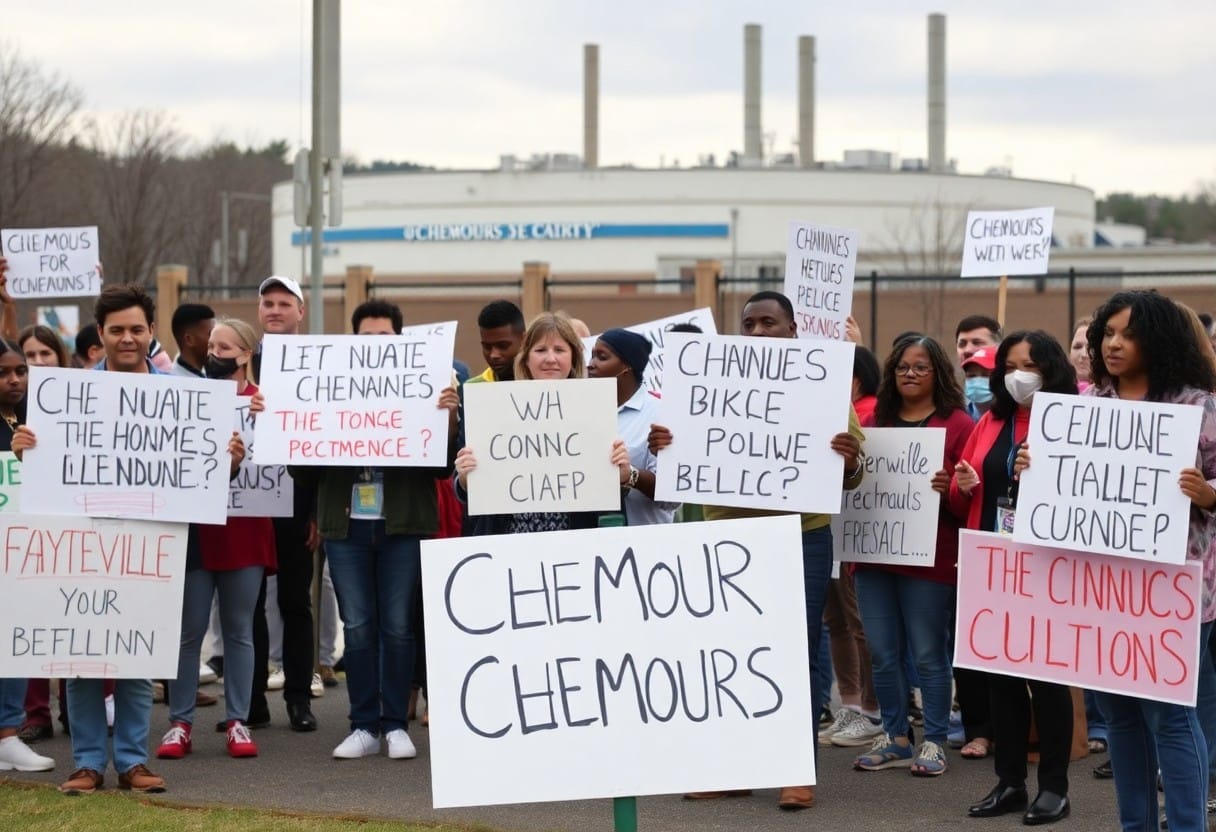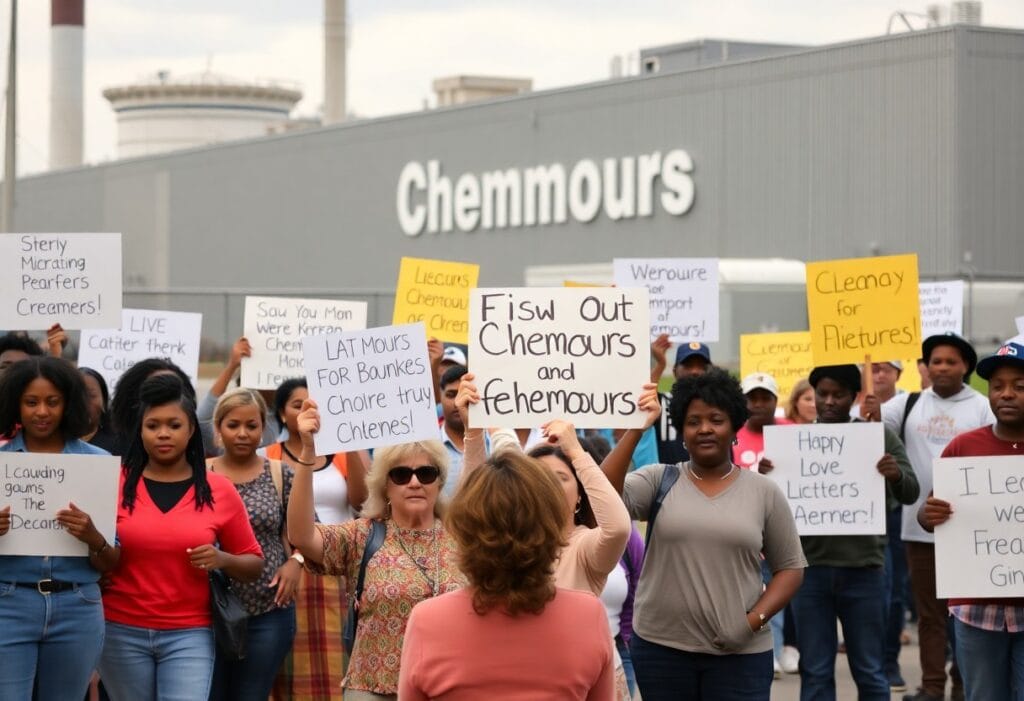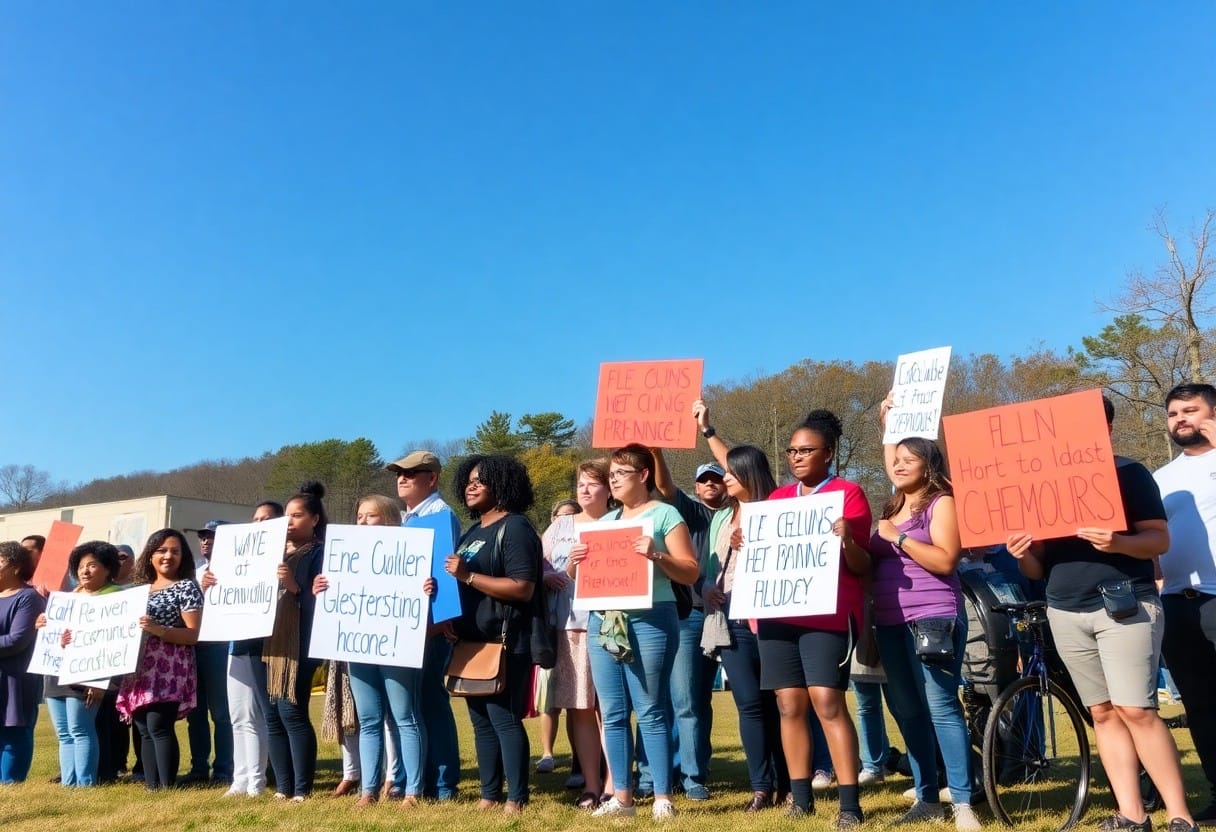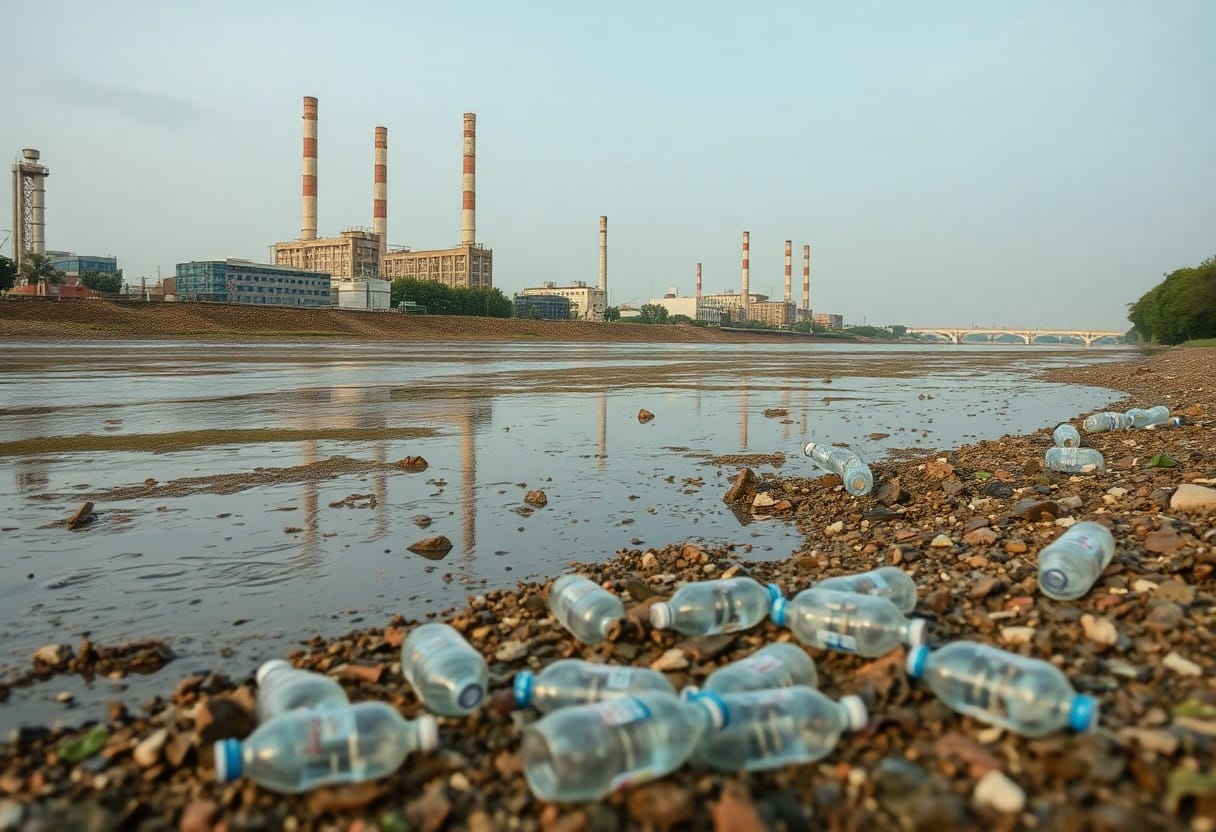Over the past few years, you may have heard about the legal disputes between Fayetteville residents and Chemours, a chemical company accused of contaminating local water supplies with harmful chemicals. These legal battles have significant implications for community health and environmental safety, as residents seek justice and accountability from the corporation. Understanding the background and current status of this ongoing conflict is necessary, as it directly impacts your neighborhood and the safety of your drinking water. This blog post will dive deep into the details of the case, outlining the challenges and concerns faced by the residents.
Background of the Chemours Corporation
Company Overview
To understand the legal battles at hand, it’s important to first grasp the essence of the Chemours Corporation. This publicly traded company emerged in 2015 as a spin-off from DuPont, focusing primarily on high-performance materials, titanium technologies, and fluoroproducts. Chemours operates globally, providing a range of chemicals used in various industries, from manufacturing to consumer products. However, its operations have not been without significant controversy, particularly regarding environmental practices and accountability.
The company has faced serious scrutiny and legal challenges regarding its release of harmful chemicals into the environment, notably per- and polyfluoroalkyl substances (PFAS), commonly referred to as “forever chemicals.” These substances are notorious for their persistence in the environment and potential risks to human health, leading to heightened concerns among communities near Chemours facilities, including those in Fayetteville.
Historical Context in Fayetteville
Around the establishment of the Chemours facility in Fayetteville, your community has experienced decades of industrial activity that have significantly shaped local life. The plant, which has long been a part of the region’s economic landscape, became central to the area’s employment and economic growth. However, as industrial operations expanded, so too did the anxieties and concerns surrounding environmental impacts. The rise of industrial waste and chemical byproducts has led many residents to question the safety of their water and air quality.
To effectively comprehend the intersection of community health and industrial growth, you must consider how Chemours’ operations have influenced not just economic development, but also the local environment. As the years progressed, instances of water contamination and rising health issues within your community grew increasingly apparent. The lack of transparency about chemical usage and waste disposal methods has fueled discontent among residents, leading to a collective demand for accountability from Chemours. This historical backdrop serves as a poignant reminder of the ongoing struggle between industrial interests and community health in Fayetteville.
Contaminants and Environmental Impact
Assuming you are a resident of Fayetteville, you may find the ongoing legal battles involving Chemours particularly relevant to your community’s well-being. The contamination resulting from Chemours’ operations has raised numerous concerns about the environmental impact in the area. Recent developments, including reports that Chemours fights legal action over company’s toxic pollution, highlight the persistent struggle faced by residents who are seeking accountability for the pollutants released into the environment.
Chemical Releases and Pollution
After extensive investigations, it has been revealed that Chemours has been linked to various chemical releases that have adversely affected soil and water quality in Fayetteville. These releases include substances such as per- and polyfluoroalkyl substances (PFAS), which have been detected in nearby water supplies. This pollution not only harms the natural ecosystem but also poses a significant threat to the health and safety of residents. Community members are now left to deal with the consequences of these environmental injustices as they push for cleanup and reparative actions from the corporation.
Health Implications for Residents
Before the situation escalated, many residents may have been unaware of the potential health implications associated with exposure to the chemicals released by Chemours. Studies suggest that exposure to PFAS can lead to a range of health issues, including hormonal disruptions, immune system deficiencies, and an increased risk of certain cancers. As a resident, it is important for you to stay informed about these risks and advocate for proper testing and transparent communication from local authorities about the safety of your drinking water and air quality.
Environmental health experts stress the significance of raising awareness about the implications of chemical exposure in Fayetteville. The current legal disputes have sparked public dialogue about the importance of holding companies accountable and ensuring that your community receives the necessary support and resources to address the contamination issues effectively. As the situation unfolds, your engagement and awareness can contribute to fostering a safer environment for all.
Legal Proceedings Initiated by Residents
Some Fayetteville residents have undertaken significant legal action against Chemours, directly challenging the company’s operations and environmental practices. This wave of lawsuits reflects growing concern among community members regarding potential health impacts and environmental degradation attributed to the chemical giant. Your rights and health are at the forefront of these legal battles, as individuals seek justice and accountability for what they perceive as harmful actions by Chemours.
Key Lawsuits Filed
About a dozen lawsuits have surfaced as Fayetteville residents join forces to hold Chemours accountable. These cases often stem from allegations surrounding the release of hazardous substances into the air and water, prompting you to take a stand against perceived unsafe practices. The collective nature of these lawsuits enhances the voice of the community, bringing to light the urgency of your claims and concerns. Legal representation for affected parties has gained momentum, ensuring that your perspective is well-articulated in court.
Legal Claims and Allegations
Legal actions taken by residents include a variety of claims that seek to address grievances raised against Chemours. Your concerns revolve around environmental damages, health complications, and alleged negligence in safety practices. These claims assert that the company’s operations have not only affected property values but also placed your health and that of your loved ones at risk.
Due to the severity of these allegations, the lawsuits emphasize the need for comprehensive environmental assessments as well as reparations for damages incurred. Residents are demanding transparency and the implementation of safety measures to mitigate ongoing risks. By standing together, you help amplify the call for accountability and urge for change, ensuring that your community’s health and safety are prioritized over corporate profits. As these legal proceedings unfold, you remain at the center of a movement that seeks to advocate for your rights and the well-being of future generations.
Community Response and Advocacy
Once again, the residents of Fayetteville have come together to voice their concerns about the impacts of Chemours on your community. As the legal battles unfold, you may have noticed an increasing wave of activism aimed at addressing the contamination issues stemming from the company’s operations. Many local organizations are working tirelessly to bring awareness to the health risks associated with chemical pollution and to demand accountability from those responsible. The push for environmental justice has uniting unlikely allies, and it underscores the resilience and determination of community members to protect their health and environment.
Grassroots Movements
With a shared vision for a safer community, grassroots movements are empowering residents like you to take action. These organizations often hold town hall meetings, rallies, and educational workshops to inform you about the potential consequences of chemical exposure and the importance of advocating for regulatory changes. Your participation in these events not only raises awareness but also strengthens the collective voice of Fayetteville residents, making it harder for government entities and corporations to ignore your calls for change.
Local Government Actions
Beside community-led initiatives, local government actions play a significant role in the ongoing struggle against Chemours. You might notice your city council or local health department taking steps to investigate the impact of pollutants on public health. This can involve calling for studies, implementing stricter regulatory measures, or even proposing zoning changes aimed at protecting residential areas from industrial exposure. In doing so, your local leaders are demonstrating a commitment to prioritizing the well-being of your community and holding Chemours accountable.
Even more importantly, some local officials have engaged in discussions with state agencies and environmental advocacy groups, seeking to establish more robust protections for residents. By pushing for enhanced testing and monitoring of water and air quality, your government is striving to ensure that your community’s health is not compromised. Initiatives like these can strengthen regulatory frameworks and potentially result in significant changes to how Chemours operates, ultimately paving the way for a cleaner and safer Fayetteville.

Potential Outcomes and Implications
Your understanding of the ongoing legal battle between Fayetteville residents and Chemours is vital as it opens up a discussion on potential outcomes and implications for both the community and the corporation. Should the residents prevail, this could lead to significant changes in how chemical manufacturing is regulated, particularly regarding emissions standards and community accountability. As highlighted in the article Why Chemours faces lawsuit from Cumberland County, outcomes of this lawsuit could set a benchmark for future claims against chemical companies, potentially inspiring other affected communities to take legal action and assert their rights against environmental negligence.
Your insight into the implications of the outcome of this case can guide future advocacy efforts. If the court sides with the residents, it could establish precedents governing corporate responsibility and environmental protection. On the other hand, a ruling in favor of Chemours could embolden the company and others in the industry to maintain or even expand their operations without the fear of backlash, posing significant risks to public health and the environment.
Legal Precedents
Below the surface of this case lies the potential for establishing significant legal precedents in environmental law. A favorable ruling for the Fayetteville residents might shape how future lawsuits against similar corporations are structured, possibly strengthening the legal basis for claims regarding environmental justice. This case may also influence courts’ interpretations of existing regulations regarding chemical safety and liability, setting new benchmarks for corporate accountability in environmental pollution.
Impact on Future Regulations
Behind this legal entanglement is the critical question of how it might affect future regulations governing chemical industries. If you consider the outcome, it can serve as a wake-up call for lawmakers to tighten regulations and oversight around chemical manufacturing. A decision against Chemours could encourage more stringent measures to protect communities from hazardous pollutants, while a decision in favor of the company might reflect a more lenient regulatory environment.
Future legislation could evolve significantly based on the results of this case. Should residents win, we might see the introduction of more rigorous regulations that hold companies accountable for environmental damage, enforcing stricter standards on emissions and waste management. Conversely, if Chemours is absolved, it could reinforce a system where corporate interests take precedence over community health, allowing for potentially dangerous practices to continue unregulated.
Public Awareness and Media Coverage
Reporting on the Issue
Keep in mind that the legal battles between Fayetteville residents and Chemours have gained significant attention in local, state, and national media outlets. This coverage has been necessary for educating the public about the potential risks associated with chemical emissions and the legal ramifications facing the company. As you read through reports, it becomes clear that journalists have played a pivotal role in bringing to light the complexities of environmental law and the health implications for communities affected by industrial activities. Investigative pieces often include interviews with affected residents, health professionals, and environmental experts, providing a comprehensive view of the issue.
Influence of Social Media
Around the same time, social media emerged as a powerful tool for raising awareness and mobilizing support. Platforms such as Facebook and Twitter have allowed you to share personal stories, organize community meetings, and engage with a broader audience on the fight against Chemours. The use of hashtags related to the issue has further amplified grassroots efforts, enabling you to connect with advocates not only in Fayetteville but across the country who share similar concerns about corporate accountability and environmental justice.
Along with traditional media, social media serves as a platform for rapid dissemination of information and updates regarding the ongoing legal proceedings. Even when facing the challenge of misinformation, your collective voices on these platforms help shine a light on the dangers posed by toxic emissions, mobilizing community pressure on local officials and Chemours itself. Additionally, organizing petitions and campaigns through social media creates a sense of urgency and solidarity, making it clear that community health is a matter that should not be ignored. Your engagement can drive real change. By sharing credible information and your own experiences, you effectively contribute to advocating for a healthier environment and increased corporate responsibility.
To wrap up
To wrap up, the ongoing legal battles between Fayetteville residents and Chemours highlight significant concerns about environmental health and corporate accountability. As a resident, you should be aware of the impacts that chemical discharges can have on your community. The legal proceedings aim to address serious allegations and seek justice for those affected by pollution. As you follow these developments, consider how they reflect broader issues of environmental law and the rights of individuals in holding corporations responsible for their actions.
Your understanding of this situation is vital not just for your knowledge, but also to engage in informed discussions within your community. The outcome of these legal battles may pave the way for future environmental regulations and corporate practices, influencing the balance between economic interests and public health. Stay informed and proactive, as these cases not only impact those directly involved but can also shape the environment you live in and the health of future generations.


















